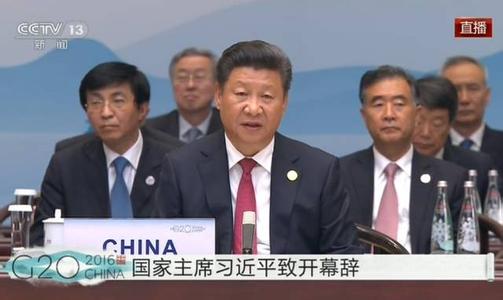On September 4, the eleventh G20 Summit was opened in Hangzhou, Zhejiang.
During the daytime meetings, the delegates showed seriousness and responsibility as international leaders as they talk about critical issues. China's President Xi Jinping gave an integrated "Chinese prescription" that struck at the root of a problem, as well as its effect to many profound challenges on the world economy and global economic governance in the opening address of the summit.
However, the welcoming banquet held on the evening of last Sunday revealed a different atmosphere as it felt like a loving family and filled with cultural communication. Xi and his lady, Peng Liyuan, welcomed the world leaders one by one and then a simple welcome speech was given by Xi.
He started with the famous landscapes and cultural heritage of Hangzhou and conveyed the voice to build deeper friendships to benefit the world through this combination and blend it with the current international situation.
Also, he cited a couple of examples that showed Hangzhou has close ties with many important countries, including two missionaries:
"In 1583, the Italian Matteo Ricci came to China and in 1599 he noted down a Chinese saying, "Up in heaven there's paradise, down on earth there're Suzhou and Hangzhou." It is believed that he was the first westerner to record the saying...140 years ago, in June 1876, Mr. John Leighton Stuart, the former U.S. ambassador to China, was born here in Hangzhou. He went to live in China for over 50 years and was buried in Hangzhou."
Matteo Ricci was renowned as the first man to bring Western education to the East. He opened a window showing the west to the Chinese at that time by introducing math, astronomy, geography, culture, western tech manufacturing and technical books. Some Chinese scholars point out that his contribution to spread the eastern learning to the west should be stressed. The great missionary also introduced Four Books and Five Classics to the westerners, which could be called the pioneer of the "westward movement of eastern cultures".
When it comes to John Leighton Stuart, many Chinese people are familiar with him for the article 'Farewell, Leighton Stuart' written by Mao Zedong in 1949. Aside from being a politician, Stuart was also an educator and a missionary. Chang Jiang, the Chinese translator of the book 'My Fifty Years in China-The Memoirs of John Leighton Stuart, Missionary and Ambassador' comments that the American ,who was born, grew up and spent most of his life in China, had the three identities.
First of all, he was the founder and the first President of Yenching University, a famed educator; secondly, he was a Christian, who came to China as a missionary. He, who was born in Hangzhou, China, of Presbyterian missionary parents from the United States, regarded evangelism as a duty of Christians; third, being a politician who was forced by the history at that time. Chang says that when the negotiation between Kuomintang and the Communist Party was starting to fall apart, he was appointed as the US ambassador, leaving the university, which was a failing appointment in the eyes of Hu Shi or himself. He didn't want to do this and felt he was unfit for this position. While tackling Chinese politics, he struggled between the unlimited confidence in humans and much doubt about the new political power, as well as the pressure that came wiht th eposition.
In addition, two songs in connection with Christian hymns were performed in an evening gala "Most Memorable Is Hangzhou": Ode to Joy composed by musician Beethoven and Auld Lang Syne. The former is included into the Chinese new hymnal and renamed as "Joyful, joyful, we adore Thee" and often sung by Christians in services.













